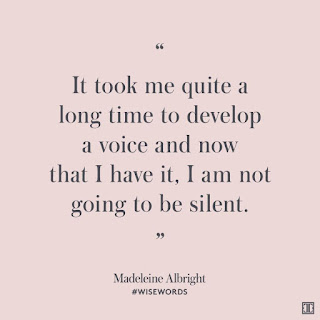Let's Talk About Relapse - Day 16 - Internal Forgiveness
Forgiveness is a practice that is commonly used in many aspects of our lives, and yet, I think it is one that many of us struggle with. Over the years working with clients in therapy, frequently I would hear the words, "Holli, why should I forgive him? He doesn't deserve it!" Or, "Why should I let her off the hook? She destroyed my life!" Or, "How can I forgive them? Look at the injustice that has been committed?" Or, "I know I need to forgive myself. But I can't. I don't deserve it."
Although you may have heard this before, I need you to hear what I am about to say. This is extremely important.
As long as we hold on to our anger, resentment, bitterness, or disappointment towards other people and things or even towards ourselves, we remain tethered to them and to those toxic emotions. Most importantly, we sabotage our own healing! Unforgiveness is like a rope that connects our being to the betrayer's being and/or those sabotaging emotions, pulling us along and suffocating us. By severing that rope and freeing ourselves in the process, we position ourselves to further our healing and to reinforce our recovering. Forgiveness releases you - not anyone or anything else.
Although you may have heard this before, I need you to hear what I am about to say. This is extremely important.
Forgiveness is not about or for the other person or thing.
Forgiveness is about and for you.
 |
| Forgiveness is about and for you. |
While re-framing the concept of forgiveness is critical to embracing it, for some individuals it is also helpful to change the word itself because they struggle with the meanings or feelings they attach to it. Working with clients, I would often search with them in finding a word or phrases that they could connect with. Some of the most common and useful terms were letting go, releasing, washing away, and giving it back to God, Higher Power, Source, or Being. Spend some time thinking about and choosing a phrase that resonates with you. Have this ready as we move into the practice of internal forgiveness in relapse- forgiveness of self.
Because of the very nature of relapse, we have in essence betrayed ourselves and our healing truths. As we have covered in previous blogs, there is tremendous shame that accompanies our choices and ensuing behaviors. In addition to shame (self-hatred and malignant embarrassment), there are other destructive feelings such as self-blame, guilt, self-doubt, disappointment, disgust, and resentment. In our humanity and reliance on self, we often feel that we can just ignore, deny, or brush away these cancerous emotions. This is a mistake, especially with relapse. We must let go of them. As I write in Mountain Air ,
"It is in our humility to release the past that we receive the grace to begin again."
It is essential in moving through and out of relapse that we not only connect with a meaningful concept of forgiveness but that we embrace a purposeful practice in which to do so. Whether it is meditating, praying, walking, journaling, or sharing in a recovery program or process, begin releasing and letting go of the painful past. Shed those destructive emotions that are holding you back, keeping you bound. If they return, release them again, and again. Forgiveness of self is not a one time process; it is continual. Each and every time you wash them away, you will experience the gift of cleansing and you will make way for the grounds of renewal.
"Although there are many venues which lend themselves to an internal washing, writing was the tool which came naturally and comfortably to me. Listening to the thunderous pulse within and waiting for the lightning to signal its urgency, I began to journal sheets and sheets of words as the storms of release moved in. When the pressure mounted and the bulky clouds opened up, the rains of residual anger, sadness, and resentment streamed out of my fingers and onto my paper. With each torrent came the washing away of all the remaining carcasses of grief, shame, and blame. And as the wall of words flowed from my soul to the tips of my fingers, I felt the remnants of the past dissipate and disappear; I felt forgiveness take their place. As each successive storm moved in and then out, the releases came more quickly and more easily as there was less and less brokenness to wash away. By the end of the summer storms, my body stood strong and erect; my mind was lightened and refreshed; and my spirit was poised for renewal."
Homework: If you have not done so already, begin practicing the process of self-forgiveness.
- Choose a word or phrase that feels safe and comfortable - one that you can connect with.
- Implement a practice(s) that feels natural, meaningful, and purposeful to you (praying, meditating, journaling, etc.)
- Schedule or set aside times for your self-forgiveness. This may sound strange, but we are more likely to do this if we make a commitment to do so, and we plan it into our healing routine.
- Repeat the process, as many times as needed.
- Take time to relish in the renewal that you experience.



Comments
Post a Comment